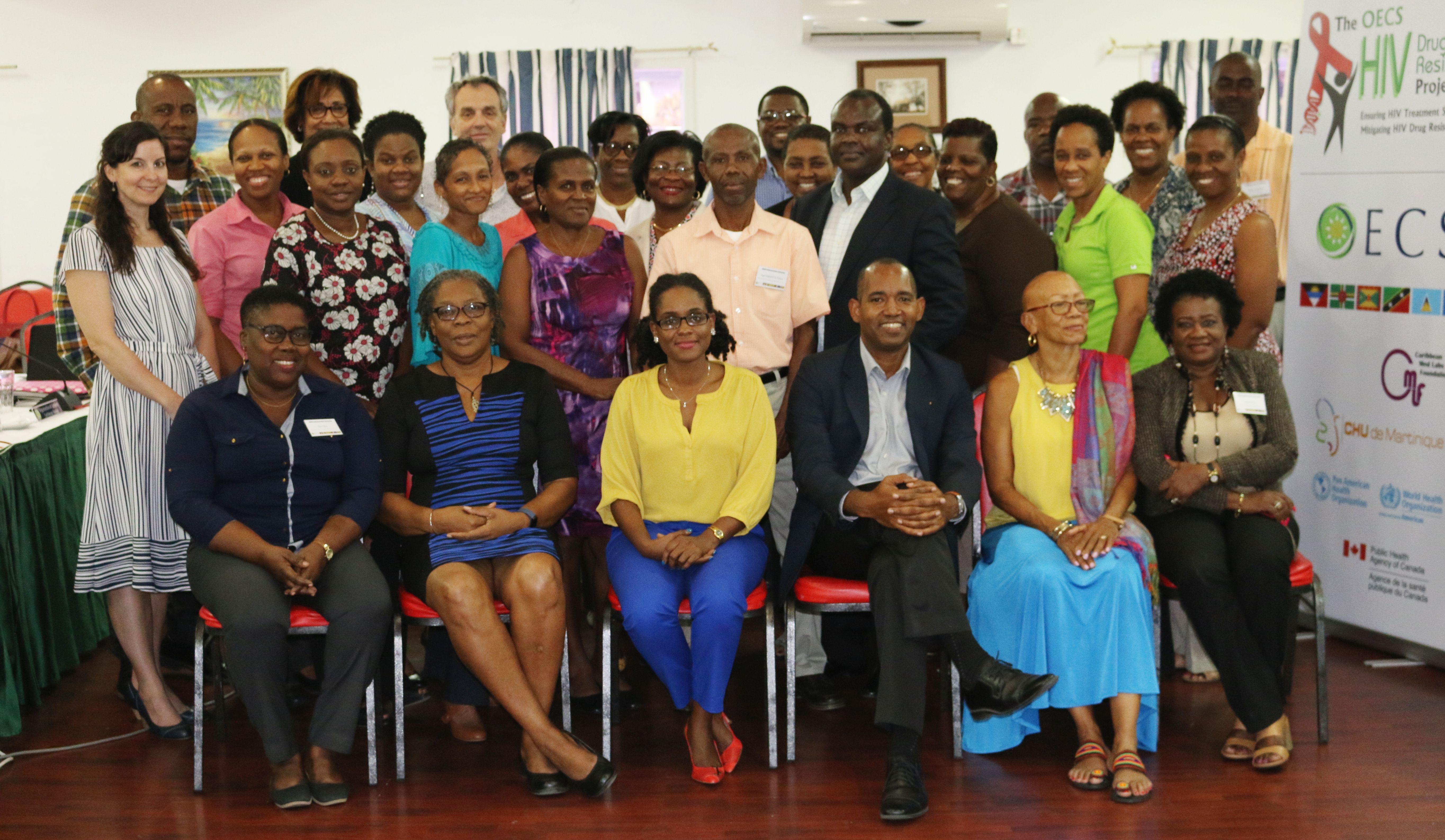OECS discuss HIV Treatment
Regional stakeholders convene for two-day workshop on HIV drug resistance
The HIV/TB Elimination Project at the Organisation of Eastern Caribbean States (OECS) Commission held a two-day workshop with regional stakeholders in St. Lucia last week, to develop an evidence-based approach to HIV treatment in the OECS through the implementation of surveys.
Over the past decade, increased access to and use of antiretroviral treatment (ART) has led to remarkable reductions in HIV-related morbidity, mortality, and incidence worldwide. With the increase of ART, however, the emergence of HIV drug resistance has become a concern in many regions.
HIV drug resistance (HIVDR) can be acquired among patients receiving ART due to treatment interruptions, poor adherence, or suboptimal drug combinations. HIVDR can hinder long term therapeutic success at the individual level and increase the risk for onward transmission of a drug resistant virus.
Ms. Lynette Hardy, Monitoring and Evaluation Officer for the HIV/TB Elimination Project at the OECS Commission, said that the generation of data on HIVDR is crucial for the sub region to make informed decisions on effective HIV treatment.
“We know that the antiretroviral treatment works, but this survey will give us scientific data that can be used for deeper analysis.”
“It is important to know how many persons are virally suppressed as a result of the treatment, as these persons are less likely to transmit the disease to someone else, and how many persons have developed a resistance to the drug,” Ms. Hardy said.
By collecting and analyzing data on HIV drug resistance among people initiating or taking ART at various time points, countries in the OECS will gain much needed information to inform national responses for HIV prevention and control, monitor and evaluate ART programs, and guide evidence-based decision making with respect to the selection of optimal treatment regimens for different patient populations.
At the two-day meeting, stakeholders worked towards the implementation of surveys to assess pre-treatment and acquired HIVDR based on the World Health Organisation’s (WHO) HIVDR Monitoring and Surveillance Strategy.
Pre-treatment HIVDR assessment provides important baseline data on the prevalence of drug resistance among persons with minimal or no previous ART exposure, and is essential to inform selection of first-line ART regimens. Assessment of acquired HIVDR provides information on the emergence of drug resistance among persons already on ART to evaluate effectiveness of treatment programs and to help inform the selection of second and third-line regimens.
At the population level, HIV drug resistance may compromise progress towards UNAIDS 90-90-90 targets as it could jeopardise population viral suppression, and in turn, the sustainability of national HIV care and treatment programs.
The number of people on ART in the Latin American and Caribbean region has continued to grow as countries have adopted the WHO Treatment 2.0 Initiative. It was estimated that 42% of all adults living with HIV in the Caribbean in 2013 were on ART.
The total number of persons receiving ART in the six OECS countries analysed was 1,025 as of April 2016; this includes persons receiving ART in Antigua and Barbuda, Dominica, Grenada, St. Kitts & Nevis, St. Lucia, and St. Vincent and the Grenadines.
The HIV Drug Resistance Study for the Caribbean was launched in 2004 in Martinique, a member of the OECS. This study will be the first to assess HIV drug resistance and treatment program indicators among people initiating and receiving ART in the OECS and hopes to contribute to enhanced efforts for surveillance of HIVDR in the Caribbean region, including identification of specific HIVDR mutation patterns in key populations.
Ms. Hardy said that having the study conducted in the OECS is a great achievement and its results will demonstrate the impact of the HIV care and treatment program.




